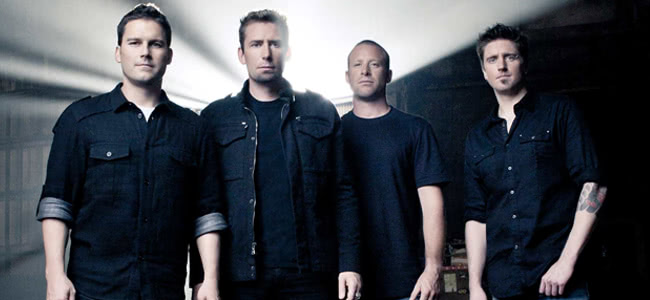Nickelback are like this punchline of the music world that everybody is slowly finding less and less funny. But for a while there, if you wanted to dismiss someone’s taste in music, you only needed three syllables and one head of dirty blonde locks.
The thing is, no one’s quite sure just why we all collectively decided that Chad Kroeger and his band were the worst thing ever. Crappy bands have been around for as long as there’s been rock and roll, so why did critics and music fans alike focus their hatred on Nickelback?
Salli Anttonen thinks she might have the answer. As BuzzFeed reports, Salli is a doctoral student from Finland who’s researching the concept of authenticity in music. Naturally, Nickelback were the perfect research subject for such a study.
“They were a good case in point because they are so widely accused of lacking authenticity,” Salli, who’s pursuing a PhD in cultural studies at the University of Eastern Finland, told BuzzFeed.
As part of her research, Salli looked through reviews of the band between 2000 and 2014. “Critics are really enthusiastic about the hatred,” she said. “I wanted to know: What is it about this one specific band that creates that?”
Salli’s subsequent paper, ‘Hypocritical Bullshit Performed Through Gritted Teeth’: Authenticity Discourses in Nickelback’s Album Reviews in Finnish Media‘, actually found something interesting – we didn’t always hate Nickelback.
But critical opinion swiftly turned and reviews stopped focusing on the band’s aesthetic merits and instead on their values, or as Salli put it, “not about the sound, but what values are attached to the sounds.”
According to Salli, earlier reviews of the band were not as harsh. “It became a phenomenon where the journalists were using the same [reasons] to bash them, and almost making an art out of ridiculing them,” she said.
By some crazy coincidence, critical opinion of the band soured right as Nickelback began achieving greater popularity. It was at this point, Salli argues, that critics realised they could authenticate themselves by “nullifying Nickelback’s authenticity”.
“The fact that the compositions suit the radio charts is a problem [for critics],” Salli said. “So then [the songs] are not authentic self expression, or have been made with commercial purposes in mind, rather than expressing your deepest emotions.”
For example, one reviewer lambasted one of the band’s live shows because Nickelback have many songs about alcohol, but Kroeger didn’t actually drink any on stage, whilst others criticised the band for “laughing all the way to the bank”.
“Nickelback is too much of everything to be enough of something,” Salli notes. “They follow genre expectations too well, which is seen as empty imitation, but also not well enough, which is read as commercial tactics and as a lack of a stable and sincere identity.”
In other words, critics, much like many music fans in general (and the police), use criticising Nickelback as a way to feel superior and inflate their own tastes and opinions, and now we have academic proof of it.



































